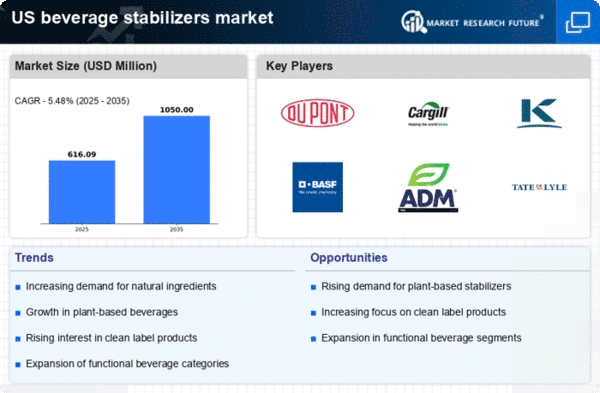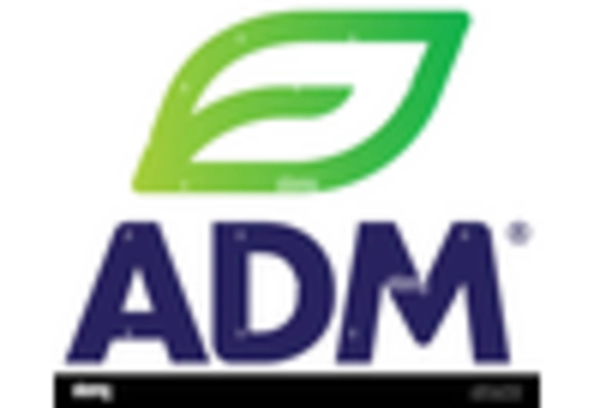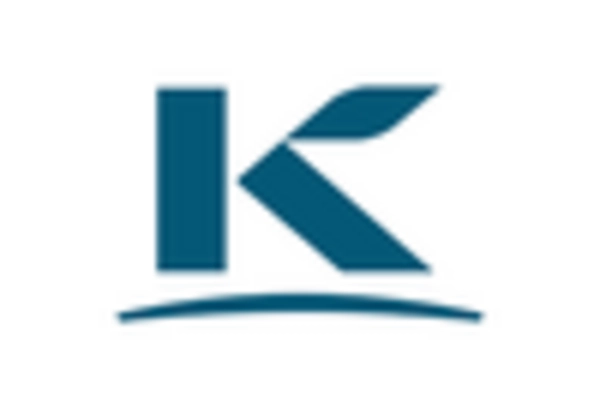Growth of Ready-to-Drink Products
The convenience of ready-to-drink (RTD) beverages is propelling the beverage stabilizers market forward. With busy lifestyles, consumers are increasingly opting for RTD options, which require stabilizers to maintain flavor and texture over time. In 2025, the RTD beverage segment is projected to grow by 15%, highlighting the need for effective stabilizers that can ensure product consistency. Beverage stabilizers are essential in preventing separation and sedimentation, thus enhancing the overall consumer experience. As manufacturers strive to meet the growing demand for RTD beverages, the beverage stabilizers market is expected to benefit significantly from this trend, as companies seek innovative solutions to improve product stability.
Rising Demand for Functional Beverages
The beverage stabilizers market is experiencing a notable surge in demand for functional beverages, which are perceived as healthier alternatives. Consumers are increasingly seeking products that offer added benefits, such as enhanced nutrition and improved digestion. This trend is reflected in the market, where functional beverages accounted for approximately 30% of total beverage sales in the US in 2025. Beverage stabilizers play a crucial role in maintaining the texture and stability of these products, ensuring they meet consumer expectations. As the trend towards health-conscious consumption continues, the beverage stabilizers market is likely to expand, driven by the need for effective stabilizing agents that can enhance the quality and shelf-life of functional beverages.
Increased Focus on Clean Label Products
The beverage stabilizers market is witnessing a shift towards clean label products, as consumers become more aware of ingredient transparency. This trend indicates a preference for beverages with fewer artificial additives and more natural ingredients. In 2025, it is estimated that clean label products will represent over 40% of the beverage market in the US. Beverage stabilizers that are derived from natural sources are gaining traction, as they align with consumer preferences for health and wellness. This shift is likely to drive innovation within the beverage stabilizers market, as manufacturers seek to develop stabilizers that meet clean label criteria while maintaining product quality and stability.
Emerging Trends in Plant-Based Beverages
The rise of plant-based beverages is significantly influencing the beverage stabilizers market. As consumers increasingly adopt plant-based diets, the demand for stabilizers that can effectively enhance the texture and mouthfeel of these beverages is growing. In 2025, plant-based beverages are expected to capture a market share of approximately 25% in the beverage sector. Beverage stabilizers are essential in ensuring that these products maintain their desired consistency and flavor profile. This trend presents opportunities for innovation in the beverage stabilizers market, as manufacturers explore new formulations that cater to the unique properties of plant-based ingredients.
Technological Advancements in Stabilizer Formulations
Technological advancements are playing a pivotal role in shaping the beverage stabilizers market. Innovations in formulation techniques are enabling the development of more effective stabilizers that enhance product quality and shelf-life. In 2025, it is anticipated that the market for advanced stabilizer formulations will grow by 20%, driven by the need for improved performance in various beverage applications. These advancements allow manufacturers to create stabilizers that are not only effective but also align with consumer preferences for clean label and natural ingredients. As technology continues to evolve, the beverage stabilizers market is likely to see increased investment in research and development, fostering a competitive landscape.
















